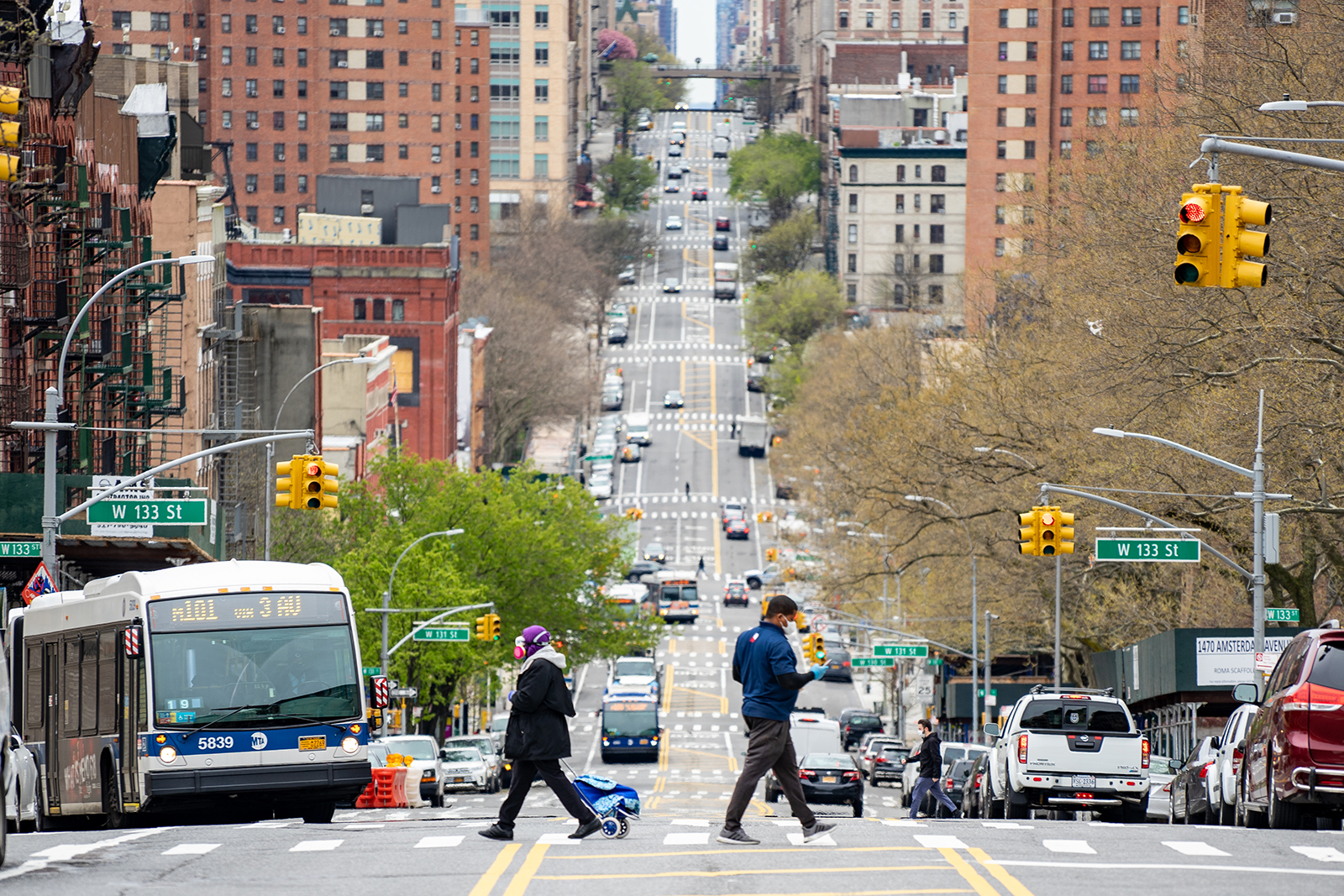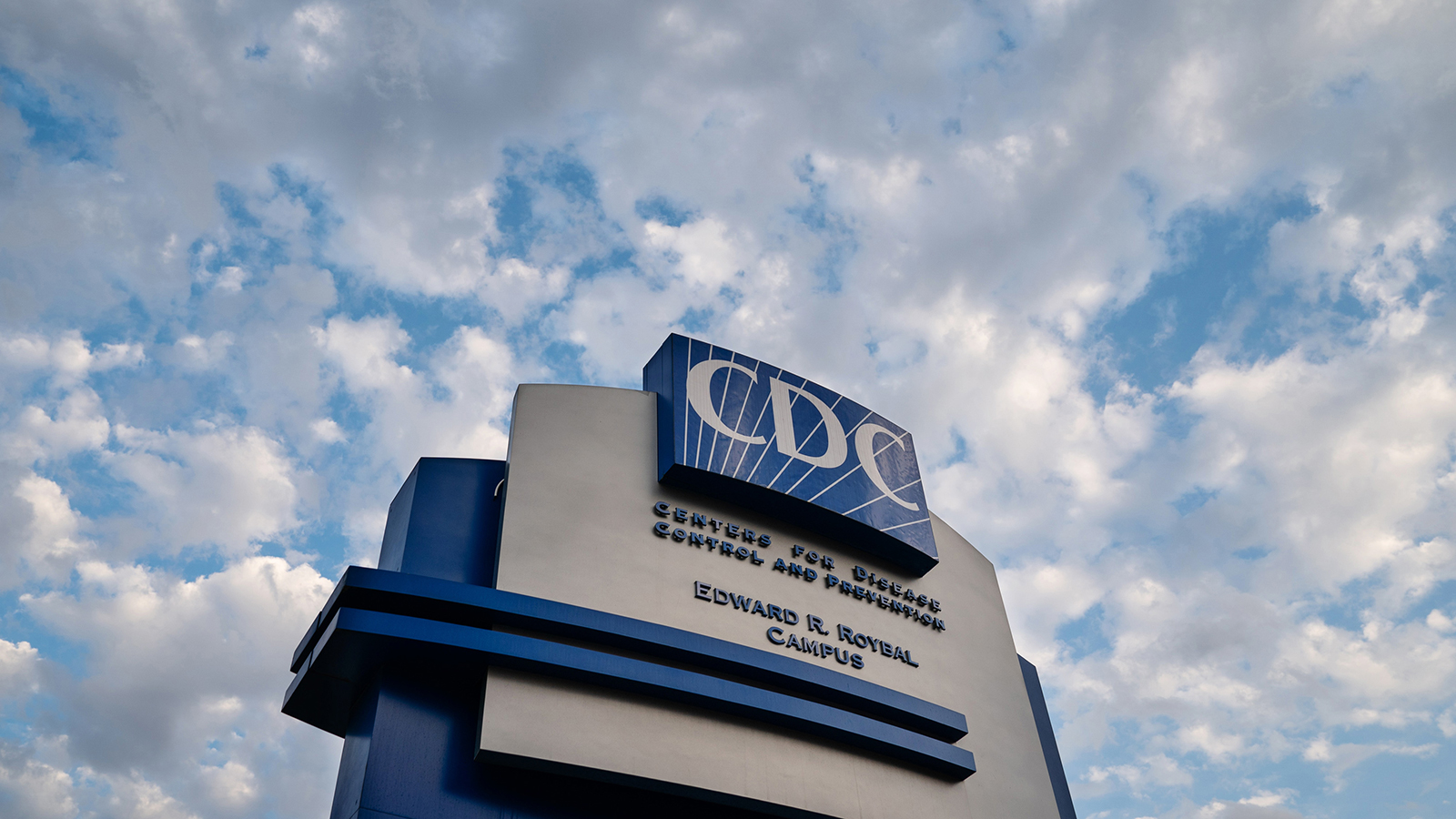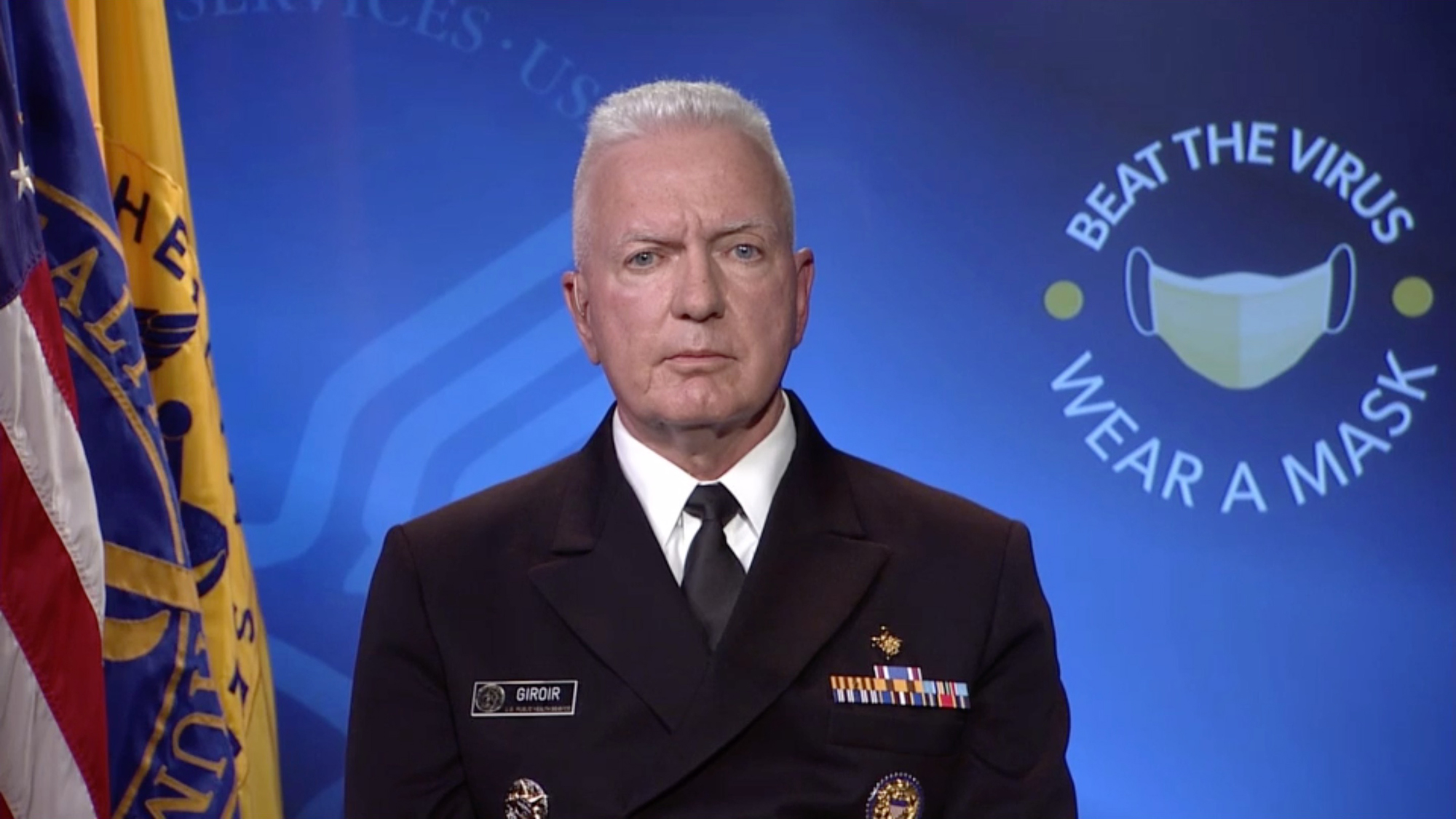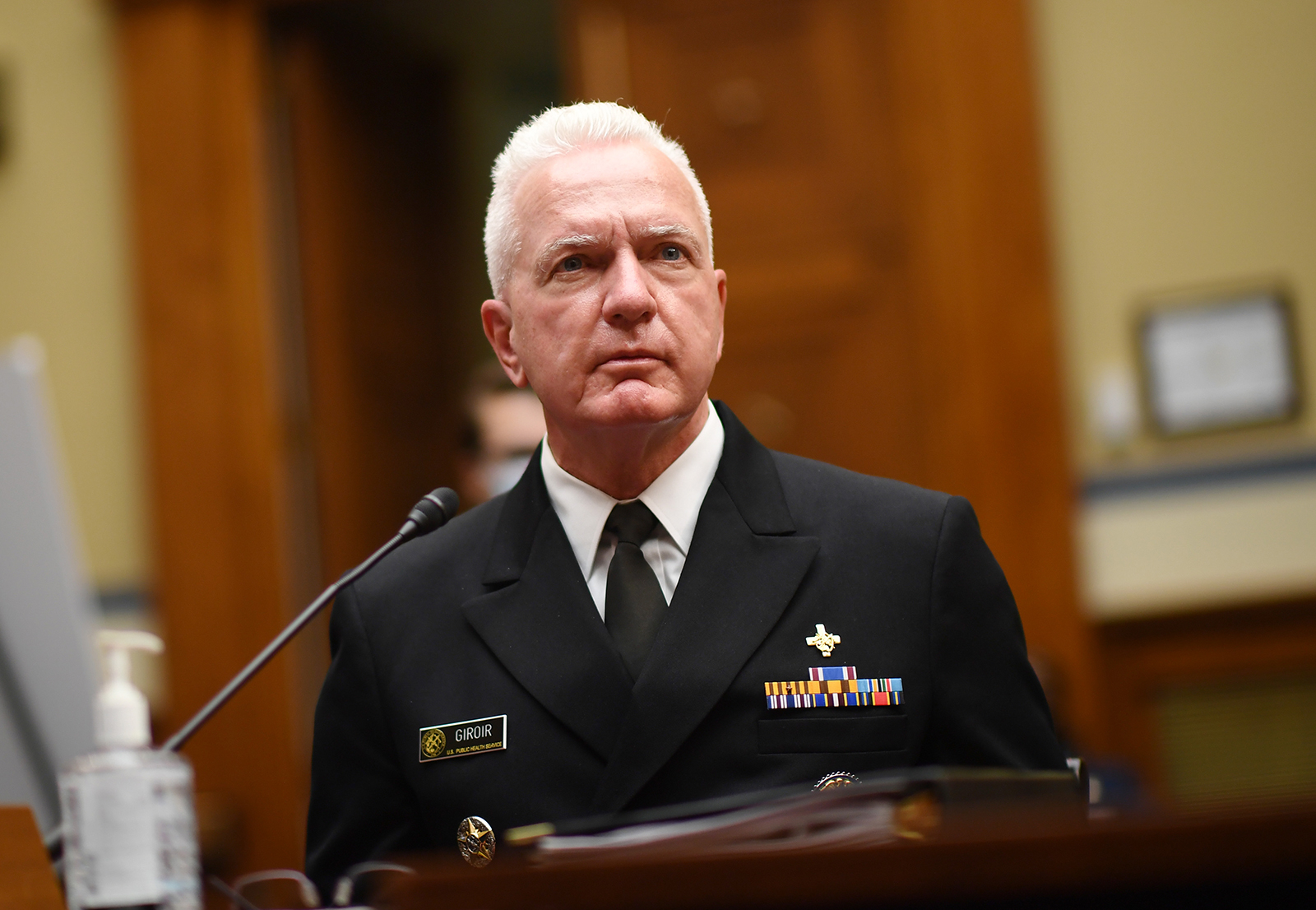1 in 4 young people in the US are reporting suicidal thoughts during the pandemic. Here's how to help
From CNN's Ryan Prior
 David Dee Delgado/Getty Images
David Dee Delgado/Getty ImagesIn the early days of the pandemic, many people came together to help each other, connecting over socially distant dinners and reaching out for video calls with friends they hadn't talked to in months.
But this international crisis continues, and Americans are having trouble adjusting to the strain of a new reality.
New psychological data taken during the pandemic shows mental health in the United States is languishing, according to data reported this week as part of the US Centers for Disease Control and Prevention's Morbidity and Mortality Weekly Report.
Suicidal ideation is up among young people since last year, with as many as one in four people ages 18 through 24 having seriously considered suicide in the 30 days preceding the survey, according to the report, in which researchers surveyed 5,412 adults in the US between June 24 and 30.
In the general US population, the CDC reported that 11% of adults surveyed had seriously considered suicide in the past 30 days before they completed the survey. Among those identifying as Black or Hispanic, the numbers were worse: 19% of Hispanics reported suicidal ideation and 15% of Blacks reported suicidal thoughts.
The results reflect a nation increasingly on edge. The number of Americans reporting anxiety symptoms is three times the number at this same time last year, the CDC said.
CDC: Updated quarantine guidance does not mean a person is immune to Covid-19 reinfection within 3 months of recovery
From CNN's Jacqueline Howard
 Signage stands outside the Centers for Disease Control and Prevention (CDC) headquarters in Atlanta, Georgia, U.S, on Saturday, March 14. Elijah Nouvelage/Bloomberg via Getty Images
Signage stands outside the Centers for Disease Control and Prevention (CDC) headquarters in Atlanta, Georgia, U.S, on Saturday, March 14. Elijah Nouvelage/Bloomberg via Getty ImagesWhile the US Centers for Disease Control and Prevention has said that people who have recovered from Covid-19 do not need to quarantine or get tested again for up to three months, the agency said in a statement to CNN that does not mean that they are immune to reinfection.
Last week, the agency updated its guidance on who should quarantine to say: "People who have tested positive for Covid-19 do not need to quarantine or get tested again for up to 3 months as long as they do not develop symptoms again. People who develop symptoms again within three months of their first bout of Covid-19 may need to be tested again if there is no other cause identified for their symptoms.
In a statement emailed to CNN on Friday, a CDC spokesperson said the guidance is “based on the latest science about COVID-19 showing that people can continue to test positive for up to three months after diagnosis and not be infectious to others.”
Yet "this science does not imply a person is immune to reinfection with SARS-CoV-2, the virus that causes COVID-19, in the 3 months following infection. The latest data simply suggests that retesting someone in the 3 months following initial infection is not necessary unless that person is exhibiting the symptoms of COVID-19 and the symptoms cannot be associated with another illness.”
The statement noted that people with Covid-19 should be isolated for at least 10 days after showing symptoms and until one day after their fever subsides without the use of fever-reducing medications.
The statement added that CDC will continue to closely monitor the evolving science for information that would warrant reconsideration of these recommendations.
Brazil reports more than 50,000 new coronavirus cases
From Rodrigo Pedroso, Fernanda Wenzel and Elizabeth Wells
Brazil reported 50,644 new Covid-19 cases, and 1,060 deaths in the past 24 hours, the country’s health ministry said Friday.
The total number of confirmed cases now stands at 3,275,520, including 106,523 deaths, according to the ministry’s data.
São Paulo state reported 11,667 new cases and 289 new deaths on Friday, down from 19,274 and 455 the day before.
Some context: São Paulo has been the state hardest hit by coronavirus in Brazil, with 686,122 total confirmed cases and 26,613 confirmed deaths.
Crime drops in South Africa as coronavirus cases rise, police data shows
From CNN's Jennifer Hauser
South Africa has reported a sharp drop in crime during the first months of Covid-19 lockdown.
Police data from April 1-June 30 shows crimes such as murder down 35.8%, sexual offenses down 39.7%, and common robbery down 49.8% compared to the same period last year.
The data reflects when the country was on level five, level four lockdown and also crimes that took place during the first month of level three lockdown.
Cele added that the ban an alcohol also contributed to lowering crime.
Ohio Valley Conference postpones fall sport competitions over Covid-19 concerns
From CNN's Jabari Jackson
The Ohio Valley Conference (OVC) will postpone all fall sport competition and championships due to “uncertainly surrounding the Covid-19 pandemic.”
Football, men’s and women’s cross country, women’s soccer and volleyball are all impacted by the postponement.
Football-playing schools will be able to play up to “four non-conference scheduled games” if approved by the NCAA. The conference's board of presidents also asked conference members to develop plans for competition in the spring semester for sports effected by the decision.
Spring competition plans will be revealed at a later date.
2 coronavirus clusters identified at UNC Chapel Hill
From CNN's Hollie Silverman
Two coronavirus clusters have been identified at the University of North Carolina at Chapel Hill, according to a statement posted to the school's verified Facebook page.
A cluster is defined as five or more cases in close proximity, the statement said.
The cases were identified in the Ehringhaus Community and Granville Towers, according to the statement. Ehringhaus is a residence hall and Granville Towers is a private apartment complex that serves as a housing option for some UNC Chapel Hill students, according to the school's website.
All individuals identified in the cluster are isolating and receiving medical monitoring, the statement said.
Trump official: "There is no physical way to do 5 million tests per day in this country"
From CNN’s Marisa Peryer
 Admiral Brett Giroir. CNN
Admiral Brett Giroir. CNNAdm. Brett Giroir, White House coronavirus testing czar, said the United States wants to increase Covid-19 testing, but “there is no physical way to do 5 million tests per day in this country.”
Giroir was responding to comments by Dr. Ashish Jha, director of the Harvard Global Health Institute, who told CNN’s Kate Bolduan Friday that the United States needs to be at least 4 to 5 million each day, based on current outbreak levels – and it’s testing well below that number. Jha’s remarks followed Giroir’s comments a day earlier that the United States testing is sufficient and country’s goal should not necessarily be to screen as many people as feasible.
“I don’t know why Admiral Giroir thinks that we are doing plenty of testing, when literally no public health expert I know of in the entire country agrees with his assessment,” Jha said earlier Friday.
On Friday afternoon, Giroir told CNN’s Pamela Brown, “I really felt compelled to come on this afternoon after hearing Dr. Jha this morning because just about everything he said was the opposite of what reality is, and that really troubled me, and I want to make sure that the American people understand where we are and where we're going.”
“When Dr. Jha comes on TV and attacks whether I care about this country and my patriotism, I figure if you have to stoop that low, the rest of the things must be doing OK.”
Kentucky expands voting options due to coronavirus concerns
From CNN's Adam Levy
Kentucky Gov. Andy Beshear and Secretary of State Michael Adams announced an expansion of voting options for voters this November as the coronavirus pandemic persists.
The plan includes expanded eligibility for absentee voting, three weeks of in-person early voting ahead of Election Day, and relaxed restrictions on voter identification for those who were unable to get a driver’s license or photo ID due clerk’s office closures amid the pandemic.
As part of the plan, any Kentucky voter who is concerned about contracting or spreading coronavirus is allowed to request an absentee ballot.
An online portal will be launched in the coming week for voters to request an absentee ballot online until Oct. 9, otherwise they can request absentee ballots through traditional means thereafter, Beshear said.
Mail ballots must be postmarked by Election Day, Nov. 3, and they must be received no later than Nov. 6, according to the plan. Drop boxes will also be available for voters to submit their absentee ballots.
Trump administration is doing everything it can to increase testing capacity, Giroir says
From CNN's Marisa Peryer
 Admiral Brett Giroir testifies during a House Subcommittee on the Coronavirus Crisis hearing on Capitol Hill in Washington on July 31. Kevin Dietsch/AFP/Getty Images
Admiral Brett Giroir testifies during a House Subcommittee on the Coronavirus Crisis hearing on Capitol Hill in Washington on July 31. Kevin Dietsch/AFP/Getty ImagesAs the US has struggled with Covid-19 testing delays and supply chain shortages, White House testing czar Adm. Brett Giroir said Friday the administration has done “everything we can do to increase testing the capacity of the country.”
When asked by CNN if it’s true that the administration has exhausted its executive authority to acquire additional supplies for labs that are processing Covid-19 tests, Giroir said, “I’m going to say definitively, yes.”
On Thursday, Giroir said US testing is sufficient and the country’s goal should not necessarily be to screen as much of the population as possible. His claim, according to Dr. Ashish Jha, director of the Harvard Global Health Institute, is not supported by experts.
“I don’t know why Admiral Giroir thinks that we are doing plenty of testing, when literally no public health expert I know of in the entire country agrees with his assessment,” Jha told CNN earlier Friday.
Watch here:

 5 years ago
511
5 years ago
511 

